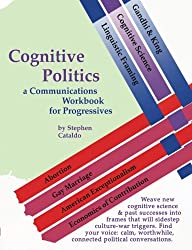Summary: Ending political conversations with an invite to participate in a mutual activity together seems to take the edge off.
I post and comment in a number of pro-Trump, Tea Party and mixed groups as part of an effort to encourage people to engage in a crowdstorming effort on how to make government work. Most of us want change. Most people want government of, for and by the people and very few people believe we have it. But sometimes I venture off a bit, trying to bring people back from extreme positions. I can't say what exactly makes it work, but even these get a few likes, an occasional "well said" and absolutely no attacks. I've gotten a handful of friend requests from the "other side' even, and strong endorsements from the founders of the Facebook groups. I don't get many comments, but I wonder if in this environment where people are so harsh online if "no comment" is a breakthrough.
Certainly respecting the other person, our differences and being open to compromise positions helps. I'll typically take into consideration the core differences we might have when addressing a topic.
In addition I (almost) always bring any comment I am making back to the question of how to make our government work for the people. Ending on that note seems to make anything I say before sound more reasonable. Or maybe they are intimidated by my invitation to join our effort (it is true if they challenge me I'll encourage them to join the crowdstorming effort).
Here's an example of a closing:
There's a movement afoot right now to work on these issues. Folks (just ordinary grassroots people, not the politicians or the corporate-funded think tanks) from across the political spectrum are coming together to figure out how to make our government & economy work for the people. It is a crowdstorming effort so the more people who participate the easier it comes for us all, and the better results. I hope you all will consider joining us.
Here's our group: https://www.facebook.com/groups/changeconversationnow
You'll find there links to reports on what we've come up with so far and instructions on how to join in figuring out detailed solutions to issues we all want fixed.

How do you end your conversations? What approaches leave a conversations feeling like you are on the same team? What approaches leave a conversation with something to do besides one side "cave in" and agree with the other's starting points?